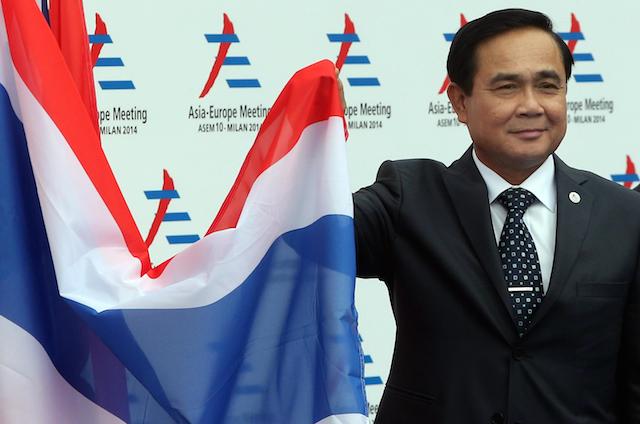
MANILA, Philippines – Half of the 14 senatorial candidates who showed up to present their platforms before University of the Philippines (UP) students on Friday, January 29, came from the slate of presidential candidate Grace Poe.
The senatorial bets were asked about divorce, same-sex marriage, the proposed Bangsamoro Basic Law, and political dynasties. They were also asked if they favored a continuation of the state university's socialized tuition scheme.
Among the members of the Puso at Galing ng Pilipino (PGP) Team who attended ANC’s “The Rundown 2016” at the UP Theater were congressmen Neri Colmenares, Sherwin Gatchalian, Samuel Pagdilao, and Roman Romulo; former Senator Juan Miguel Zubiri; labor advocate Susan Ople; and prominent women's right lawyer Lorna Kapunan.
Bayan Muna Party-list Representative Neri Colmenares said he will push for industrialization that is not propelled by foreign investors but by the local economy – a point he also raised during Rappler's recent #TheLeaderIWant forum. (READ: ASEAN integration will 'cripple' local economy)
The martial law veteran said that the government should pour capital into local businesses. This way, there would be more factories in the country that would provide employment.
Valenzuela Representative Sherwin Gatchalian and Pasig Representative Roman Romulo both advocate the improvement of access to higher education.
Gatchalian vowed to abolish tuition fee in state universities and colleges (SUCs) should he be elected as senator.
Romulo, for his part, boasted of education policies he championed: the Unified Student Financial Assistance System for Tertiary Education (UniFAST) Law and the “Iskolar ng Bayan” (state scholar) Law.
The UniFAST law intends to make tertiary education affordable to the poor by rationalizing the allocation of government-funded financial assistance programs. The “Iskolar ng Bayan” Law assures top high school graduates scholarships in 112 SUCs.
Zubiri, being a former lawmaker, also cited measures he authored. They included the Renewable Energy Act and 20 other enacted bills. He is shared candidate of Poe's PGP and Vice President Jejomar Binay’s United Nationalist Alliance (UNA).
As former police general, ACT Party-list Representative Samuel Pagdilao said peace and order will be his priority. He assured students that they would have peace of mind going to schools because they would be free from fear of being victims of crimes.
The two women from the Poe's senatorial slates said they will fight for justice on different fronts.
Susan Ople, daughter of the late labor secretary and Senator Blas Ople, said she will push for justice for overseas Filipino workers (OFWs) who have continually been victims of abuse by their employers. (READ Rappler's Women senatorial bets vow to prioritize labor, human rights)
Kapunan, who formerly served as legal counsel for pork barrel mastermind Janet Lim Napoles, said she will plant the seed of HOPE: honesty in government, opportunity for all, peace, education, environment, and employment. (READ about Kapunan's #TheLeaderIWant speech: I'm desperate, angry, but not hopeless about PH)
Independent, admin, opposition bets
Also present at the forum in UP were independent candidates and former security officials Rafael Alunan III and Dionisio Santiago.
Former Alunan, a former interior secretary, said he seeks to empower the Filipinos with a “total national well-being” achieved by advocating “good governance, reform of the justice system, poverty reduction and national security.”
On the legislative agenda of former Armed Forces of the Philippines General Dionisio Santiago are security and defense, anti-drugs program, and national development.
Days after lawmakers declared the proposed Bangsamoro Basic Law dead, Liberal Party candidate Narina Ambolodto, a Muslim, said she will continue fighting for peace.
Her party-mate, former Energy Secretary Jericho Petilla, said he will push for cheaper electricity laws.
Another administration candidate, Tourism Infrastructure and Enterprise Zone Authority chief Mark Lapid, said will continue to boost tourism because it is the foundation of the economy.
The opposition’s "senatoriables" also joined the debate.
UNA’s Sandra Cam vowed to pass measures that will curb corruption in government such as the Whistleblower’s Act and the freedom of information law. In 2005, Cam exposed the alleged jueteng (illegal numbers game) in Bicol that involved former lawmakers Mikey and Iggy Arroyo, sons of then President Gloria Macapagal Arroyo.
Leyte Representative Martin Romualdez told the UP audience that he will prioritize reduced laboratory fees and increasing the number of dormitories. He will also push for additional health funding and allocations for livelihood programs.
The 14 candidates were presented in two batches. The first batch, composed of Poe’s candidates, answered questions on divorce and higher education spending. The second batch – a mix of independent, administration, and opposition bets – were asked about their stand on same-sex marriage, anti-political dynasty bill, and the proposed Bangsamoro Basic Law. – Rappler.com



















